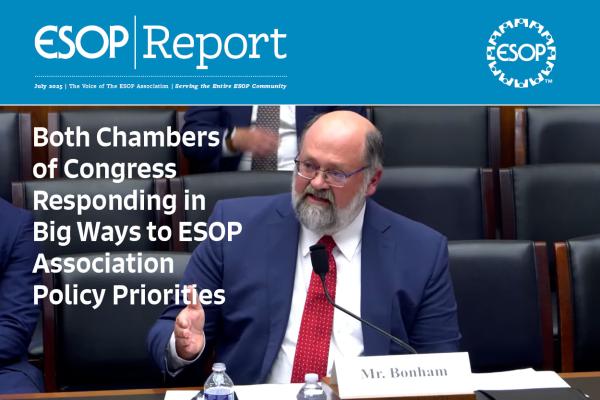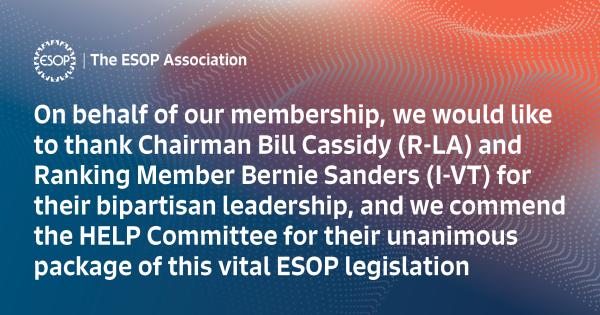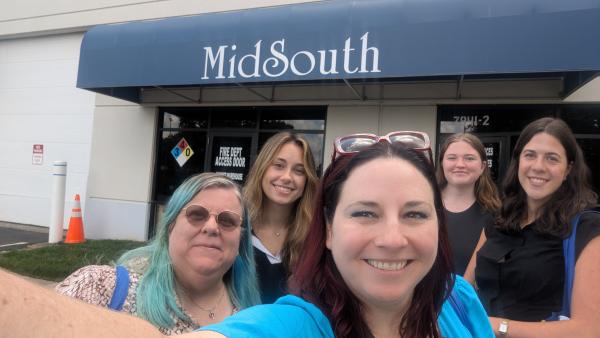For the last three years, the Employee Ownership Foundation has been proud to convene global thought leaders at the Oxford Symposium on Employee Ownership in the United Kingdom.
In 2024, in a testament to the event’s growing importance in expanding employee ownership around the world, the Symposium saw a record number of attendees from 23 countries across five continents.
The Oxford Symposium has been helping build momentum for employee ownership through an open exchange of ideas and best practices among elected officials, NGOs and organizations like The ESOP Association, business leaders, and scholars. The ideas generated at the Symposium have had a great impact, as Canada has enacted legislation to facilitate Employee Ownership Trusts (EOTs), and Slovenia is in the late stages of an employee ownership model. Many other attendees have taken what they learned at the Symposium back to their home countries, where ongoing efforts to establish or grow employee ownership continue.
Discussions at the Oxford Symposium center around barriers and opportunities to grow employee ownership on a worldwide scale, and develop new ideas and policies to advance the cause of employee ownership. This year’s event drew participants from 23 countries including Mexico, Canada, Germany, Slovenia, Japan, India, Sri Lanka, Uganda, and Nigeria, as well as senior U.S. congressional staff from key committees with jurisdiction over ESOPs.
This diverse mix of leaders, from large and small, developed and developing countries was an ideal backdrop for participants to share their experiences with employee ownership and to learn from other nations who have had recent successes. The 2024 Symposium also featured an increased number of participants from the international investor community, which is increasingly focused on the value that can be created by employee ownership.
The Symposium began with welcoming remarks by EOF President and TEA CEO Jim Bonham, who also delivered the closing keynote address and shared a heartfelt personal story of his experience with employee ownership. The opening sessions were held at the historic Sheldonian Theatre, which was finished in 1669 and designed by Christopher Wren, one of the most famous architects in England’s history. Over the course of two days, the Symposium covered many topics of importance to employee ownership, including: recent policy developments; achieving fairness in company valuations and financing conversion to employee ownership; abuse prevention; ensuring employees truly benefit from their company’s success; and how to gain greater recognition and popularity of employee ownership among business owners and the public.
One of the highlights of the 2024 Symposium was a discussion on Canada’s recent experience and lessons learned in passing employee ownership legislation led by Jon Shell, a leading advocate for Employee Ownership Trusts. The Symposium was also privileged to have Senator Tony Loffreda from Canada, who offered his insights into why employee ownership attracts politicians and why it’s worth it to support robust policies for employee ownership.
The ESOP Association and the Employee Ownership Foundation are extremely grateful to our corporate and professional members who journeyed to Oxford to participate in the Symposium and share their unique experiences as speakers and panelists. Thanks to Regina Carls from JP Morgan, Mass. Bay Brewing Company CEO Daniel Kenary, Jade Palermo from Empire Valuation Consultants, and Taylor Guitars CFO Barbara Wight. We would also like to thank EOF Chair David Fitz-Gerald and Foundation Executive Committee members Cindy Turcot and Gary Shorman for lending their deep expertise to the event as well.
Lastly, the EOF would like to acknowledge our longtime partners, Graeme Nuttall from FieldFisher and John Hoffmire from the Center on Business and Poverty, for their work in helping to organize this premier event for worldwide employee ownership.









